#bevs
That Sucks: Tesla Was Hip to Dyson's Secret Car Plans Before Any of Us
As you know, Dyson, the vacuum/hairdryer manufacturer, is moving into electric vehicles. The company has made plans to introduce a radical example (with new solid-state batteries) to market by 2020 that will suck and blow you away. But you only found out last year, which was long after Tesla Motors caught wind of a fresh competitor on the horizon.
Apparently, an engineer spilled the beans to Tesla’s legal representation around the same time he was being interviewed for a position at the automaker. If you’re wondering if he got the job, he did.
This is the second time Dyson’s plans for EV secrecy went haywire. Its public announcement wasn’t supposed to be until September of this year. However, a slip-up by the British government saw its National Infrastructure Delivery Plan mention that the public would help fund the company in “developing a new battery electric vehicle” — giving away the secret in 2016.
Betting On Green: Poland Plans to Open Largest Battery Factory in Europe
South Korea’s LG Chem is planning to open the largest lithium-ion battery factory in Europe to aide the continent’s automotive industry as it prepares its much-hyped shift toward EV production. According to LG, construction of the battery plant — located in Wrocław, Poland — is set to begin immediately and batteries should be ready for slotting into vehicles before the end of next year.
In a an announcement, the company said the plant would have a production capacity of 100,000 batteries per year for EVs that can run up to 199 miles once charged. Previous estimates were more conservative but, with German automakers promising widespread electrification, LG saw no reason for half measures.
“We will turn the Poland EV battery plant into a mecca of battery production for electric vehicles around the world,” said company president UB Lee. “As LG Chem’s Poland EV battery plant is the first large-scale automotive lithium battery production plant in Europe, it will play the role of vitalizing the electric vehicle industry across the whole of Europe. We will put all our efforts into making the plant into a main production hub for EV batteries.”
Further Proof That Hydrogen Cars Are Stupid
Hydrogen is the most abundant element in our universe and hydrogen-powered vehicles produce only a single emission: water. It’s no wonder a handful automakers have touted it as the next-step in “sustainable” transportation, because it looks great upon a cursory examination. But it hasn’t held up under increased scrutiny and numerous manufacturers have been highly critical of fuel cell cars.
Earlier this year, Jaguar Land Rover’s technical design director called hydrogen-powered vehicles a disaster in practical efficiency. Tesla Motors’ Elon Musk went even further, calling the technology “incredibly dumb.” More recently, VW Group also hinted that it thought there wasn’t going to be much of a future for fuel cells. Matthias Mueller’s address at the Frankfurt Auto Show was heavy on electrification and light on hydrogen, with Audi spearheading the technology.
Although, if president of Audi of America Scott Keogh is to be believed, it looks to be a rather dull spear they are using.
More Internal Combustion Abandonment: Mazda Plans Fully Electric Fleet By 'Early 2030s'
Mazda recently announced the testing of its Skyactiv-X compression ignition engine, which promises to burn gasoline with diesel-like efficiency. If it hits its projected launch date of 2019, it will become the first mass-produced motor of its type and is likely to be showered with praise from environmentalists and enthusiasts alike.
However, as we progress deeper into the millennium, it’s becoming evident that more and more automakers are willing to embrace electricity as the next solution to efficiency. That makes Mazda a bit of an oddity, maybe even a dinosaur, and we were wondering when the company would give in to electrification. Especially since it has already partnered with Toyota to tighten its grasp on the technology.
BMW Concept Sedan, Slated for Production, to Bolster Electric Sub-brand
BMW showcased the i Vision Dynamics concept at the Frankfurt Motor Show this week — making it the third model for its i low-emissions electro-centric sub-brand. As a potential rival for Tesla’s Model 3, the i Vision Dynamics has all the hallmarks of an evolutionary automobile: an electric powerplant, absent grille, and the most boring name imaginable.
With windows tinted so black that you couldn’t tell if the sun was behind the wheel, the concept car is probably little more than a shell. We’ll take it at face value, noting that it exists as the physical representation of BMW’s promise to modernize as much as it does as a prototypical production model. However the automaker did say it will go on sale in 2021 — which is more than a little surprising.
Volkswagen Officially Confirms Electric Microbus Production - Who is Supposed to Care?
Volkswagen is bringing back one of America’s iconic and beloved vehicles, the microbus, as fully-electric van. Made official over the weekend, VW’s announcement indicated a production version of the horrendously named I.D. Buzz Concept would appear in North America, Europe, and China for 2022.
Showcased earlier this year at the Detroit Auto Show, the vehicle is an unabashed nostalgia-machine with enough modern features to keep itself contemporary and betray some of its retro charm. But didn’t we already do this over a decade ago? Immediately after the new millennium, it seemed like most automakers had something on offer to satiate Baby Boomers’ lust for the past. The Chrysler PT Cruiser, Ford Thunderbird, Ford Mustang, Dodge Challenger, Plymouth Prowler, Mini Cooper, Chevrolet HHR, Chevy SSR, and even VW’s own New Beetle all arrived as part of this slightly awkward push to bring back the glory days of the those enjoying their youths in ’60s and ’70s.
The forthcoming Volkswagen van may, if you’ll excuse the terrible pun, have already missed the Microbus. While the vehicle possesses a charm that supersedes age, it might have been more welcome fifteen years ago. Boomers, who would be the most likely to purchase such a vehicle, are getting older — perhaps too old to want something like this. But maybe they’re not the market the German automaker is going for.
Mitsubishi Puts the I-MiEV Out of Its Misery
It’s always a little sad to see an existing model discontinued. Well, almost always. Mitsubishi is taking the hint and officially killing the unloved i-MiEV — something we are willing to bet isn’t going to inspire an abundance of heartache within the driving community.
Despite being a pioneering electric car (and kind of cute), the i-MiEV was never what one might consider a volume vehicle. Since 2015, North America had frequently seen months where the little Mitsubishi couldn’t even break out of the single digit sales bracket. Last year, Canada sold a total of 86 units and the United States moved 94.
With a 62-mile range rating and one of the smallest interiors money can buy, it has always been poorly suited for the majority of American drivers’ needs and repeatedly slashing the price never made up the difference. While Nissan’s Leaf comes in almost $8,000 grand higher, $22,995 is still a lot to pay for something you don’t want — and nobody wanted an i-MiEV.
Toyota Planning Long-range EV Using Solid-state Batteries by 2022
Toyota, the company that came out with the Prius in the 1990s and decided it had perfected the electric car, may be looking regain its EV advantage by 2022. It’s not something you’d expect to hear, considering Japan’s largest automaker has lagged behind in terms of competitive electric development for the last few years.
While its hybrid program got the drop on the competition, it subsequently favored hydrogen fuel cells over purely electric vehicles as the next automotive epoch — creating a bit of an industrial dinosaur.
Fortunately, Toyota has no shortage of muscles to flex. Once news broke that Toyota was earnestly considering electric R&D, everyone speculated it would be competitive at roughly the same time as other automakers. Not so. On Tuesday, Japanese newspaper Chunichi Shimbun reported Toyota has quietly upped its game to surpass them.
Pending Battery Armageddon Ready to Doom Future EV Production
Practically every major manufacturer is touting electric cars as the future of automobiles. There’s good reason to believe them.
With few exceptions, automakers are aggressively pushing toward battery driven vehicles to meet ever more stringent regulatory demands. Several brands plan on fleet-wide electrification within a few years and a handful already snub internal combustion engines entirely. But there may be a massive problem on the horizon ready to handicap the greener future many of us were prepared to embrace.
Volkswagen, a company that has been promoting its own electric revolution in the wake of its diesel emission fiasco, is anticipating a serious lithium-ion battery shortage by 2025. Based on targets of achieving 25 percent of Volkswagen’s total volume from electric vehicles in 10 years, Ulrich Eichhorn, VW’s head of research and development, dramatically increased projections made 13 months ago.
Previous estimates from the company had the number set at 150 gigawatt-hours of electricity.
“We will need more than 200 gigawatt-hours,” Eichhorn stated on June 30th during a presentation at Volkswagen’s proving grounds north of Wolfsburg.
Every Single New Volvo Will Be Electrified After 2019
Volvo has been pushing “non-traditional” powertrains for a while. The company, encouraged heavily by its Chinese owner, has already begun moving toward limiting engine options in the very near future while focusing heavily on electrification. In 2014, the brand said all of its cars would be offered with a plug-in hybrid variant to supplement purely gas-powered models. Now it’s taking things further, setting a definitive timeline for the shift and stating that every new model after 2019 will be a hybrid or purely battery-driven vehicle.
“This announcement marks the end of the solely combustion engine-powered car,” Volvo CEO Håkan Samuelsson explained in an official statement on Wednesday. “Volvo Cars has stated that it plans to have sold a total of 1 million electrified cars by 2025. When we said it we meant it. This is how we are going to do it.”
First Production Tesla Model 3 to Appear This Week, Says Musk
Production of the Model 3 is set to begin two weeks ahead of schedule, according to Tesla Motors chief executive and second most famous Twitter user in America, Elon Musk. While that news would probably be more exciting if we had ever been given a definitive timeline for the vehicle, the CEO claims it should equate to the very first car rolling off the assembly line by the end of this week.
“Model 3 passed all regulatory requirements for production two weeks ahead of schedule. Expecting to complete SN1 on Friday,” Musk tweeted late last night, causing half a million Tesla fans to engage in a collective round of giddy, high-pitched squealing. However, the most enthralled members of the company’s rabid fan base are likely to be the 30 people who get to wrap their quivering digits around the steering wheel of their very own Model 3 before the end of July.
Study Shows Nearly Nine in 10 Americans Want Better Fuel Economy, But There's a Problem
A recent study from Consumers Union — the public policy and advocacy division of Consumer Reports — shows continued interest among U.S. residents in seeing automakers improve fuel economy figures, even as gas prices remain fairly low.
While this should come as a shock to no one, nearly nine in 10 surveyed consumers agreed automakers should continue improving fuel efficiency standards on all vehicles. As well, only 30 percent believed manufacturers actually cared about lowering fuel costs for their customers.
This might be true but, then again, why would automakers do such a thing when the general populace has essentially turned its back on economical passenger cars? With little incentive to sell them, especially if the Trump administration alters 2025 emission targets, any top-tier automaker focusing exclusively on building MPG-focused automobiles would be placing itself at major financial risk.
The survey indicated fuel economy as the area perceived to possess the most room for improvement in modern vehicles. However, consumers have not used their wallets to bolster economy car sales. There appears to be a disparity between what the public claims to value and how it actually behaves. At a minimum, consumers may have misunderstood everything it would take to see fleet-wide fuel consumption decline. If they want to see higher MPGs, they’re going to have to make some sacrifices and the survey doesn’t allude to that fact.
California Considering Making Electric Cars Cheaper at the Dealership
Federal tax credits for electric vehicles won’t last forever, especially under the Trump administration. While it’s difficult to quantify exactly how many people saw the $7,500 rebate as the deciding factor to “go green,” there is little doubt that it factored into the final purchasing choice of some buyers.
California has made the promotion of zero-emission vehicles a matter of great concern. With General Motors, Nissan, and Tesla all gradually approaching the 200,000-unit quota for vehicles eligible for the tax rebate, the state doesn’t want to see buyers lose purchasing incentives prematurely. With that, California is considering a bill that would provide discounts to EV shoppers at the time of purchase, essentially reducing the sticker price before the car even leaves the lot.
Automotive Industry Annoyed China Gets to Decide What Engines It Offers
With the possible exception of the United States in the near future, emission regulations are getting harsher everywhere. Nowhere is that more true than China. Not only does Asia’s most populous country have some of the most stringent emission requirements for new cars, it also has the strictest sales quotas for electrically powered vehicles on the planet. Too strict, according to some automakers.
A Chinese draft regulation issued last week stipulates automakers must sell enough electric or plug-in hybrid vehicles to comprise 8 percent of total volume by 2018, 10 percent by 2019, and 12 percent by 2020. This comes after talks between Chinese Premier Li Keqiang and German Chancellor Angela Merkel that hinted China might have mercy on Germany manufacturers.
Chevrolet Bolt Will Hit Remaining Dealer Lots in August
General Motors will begin selling the Chevrolet Bolt nationwide in August, a month earlier than it originally planned. While California power nerds like Bill Nye and Steve Wozniak received their EVs months ago, GM’s rollout schedule hinged on dealerships getting their ducks in a row before the rest of America could gain access.
“We were waiting for the training to be done, we were waiting for the right tools to be in place,” Steve Majoros, Chevy’s marketing director, said at a media event. “We are kind of ahead of schedule on implementing all of those things as well as making sure we have enough sufficient inventory.”





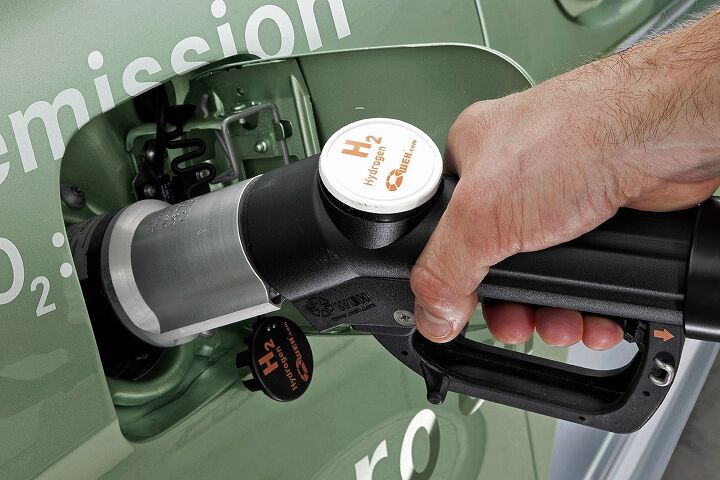
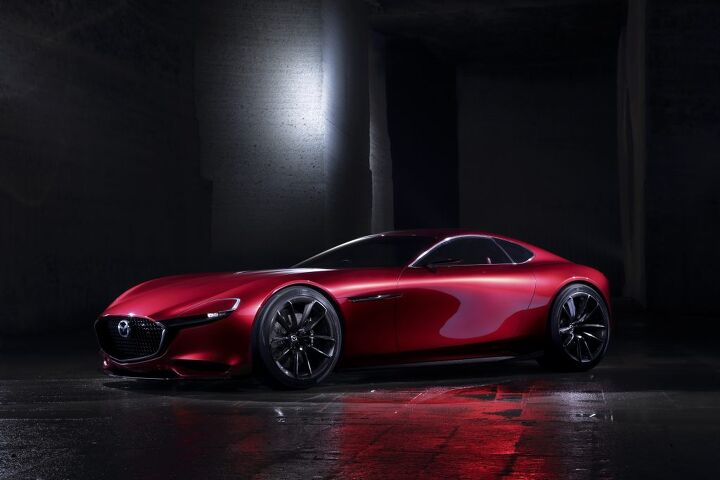
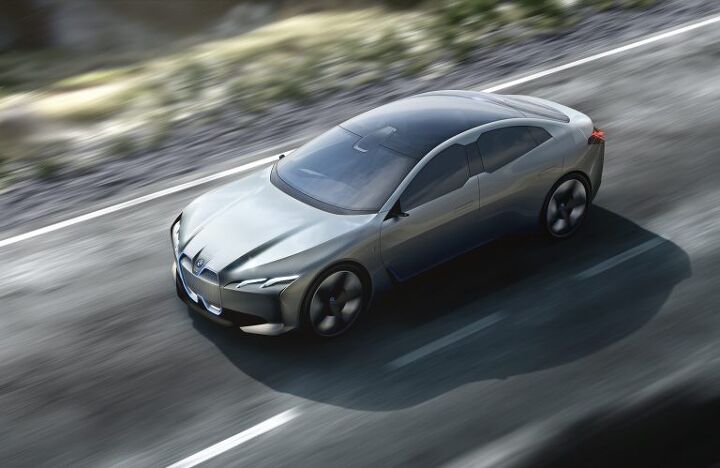
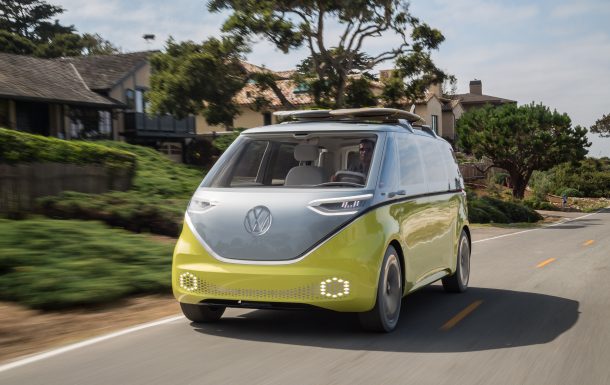


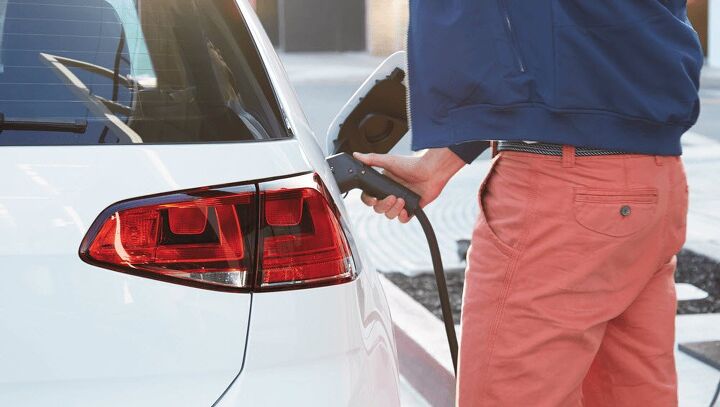

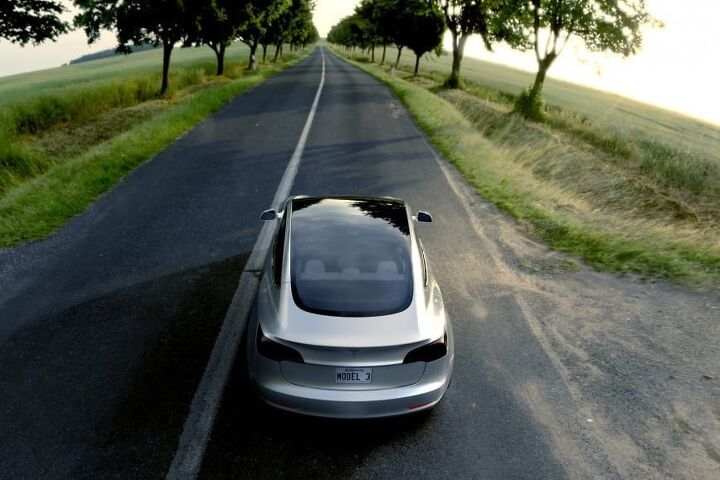

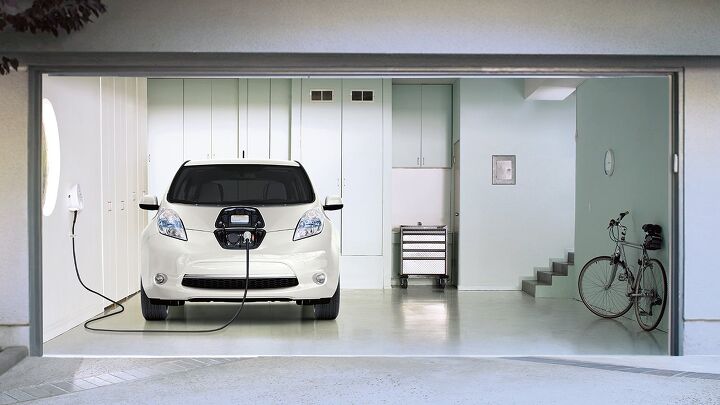

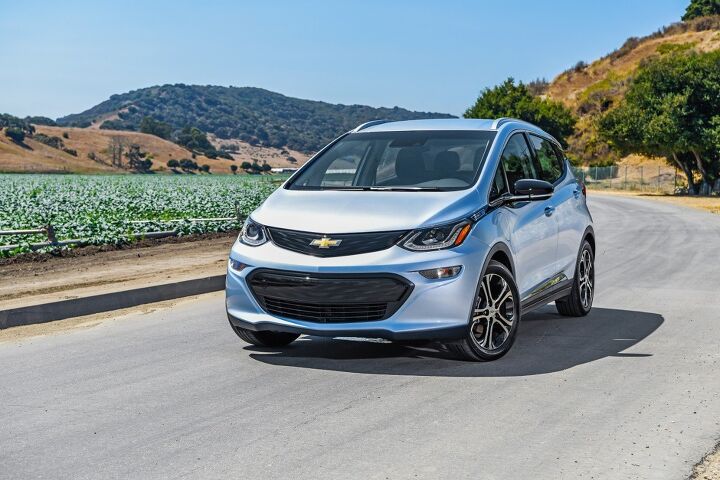












Recent Comments